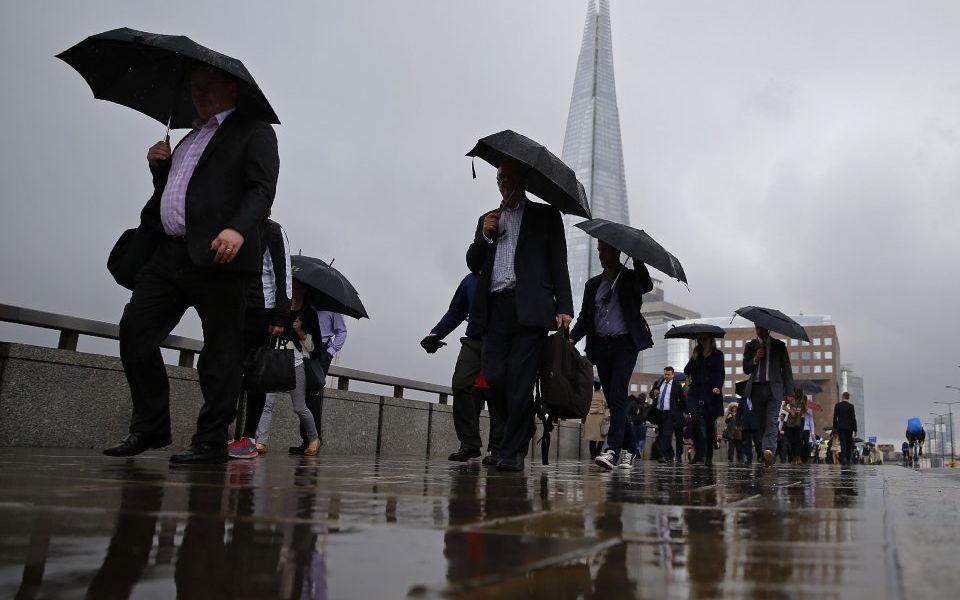Outrage-induced regulation will not fix the broken audit market

The audit market is broken.
Don’t take my word for it – ask Rachel Reeves, the Labour MP who chairs the BEIS select committee, or Liberal Democrat leader Vince Cable, or even the Conservative business secretary Greg Clark, who last month ordered an inquiry into competition in the sector.
With such cross-party concerns, it should not come as a surprise that the Competition and Markets Authority announced this week that it was scrutinising the sector, amid sentiment that it “is not working well for the economy or investors”.
Read more: With the CMA scrutinising the Big Four, can we still trust auditors?
The numbers do not look good. The “Big Four” accounting firms – PwC, Deloitte, EY, and KPMG – together audit 99 per cent of FTSE 100 businesses and 96 per cent of the FTSE 250.
This year, they’ve been propelled into the spotlight by Carillion. Many say that the construction giant’s disastrous collapse was at least in part down to its auditors, KPMG, which pocketed £1.5m a year while failing to highlight any issues. KPMG, it is argued, was either woefully inept when it signed off Carillion’s rocky accounts, or complicit.
The calls for action have been many and varied. Some have argued that auditors should be accountable to parliament. Others, from across the political spectrum, have proposed that the Big Four be broken up, or forced to spin off their audit functions from their lucrative consultancy, on the grounds that doing both can lead to conflicts of interest.
The arguments for and against such drastic action are lengthy, technical, and verge into realms unintelligible to everyone except specialist accountants.
But one glaring question leaps out to anyone who believes that markets, in general, lead to competition and improvement: why such dominance from just four firms?
In a market system, you would expect smaller players to spring up and challenge large incumbents. Clearly, this isn’t happening with audit. Competition isn’t working outside this quartet cartel. Why not?
Part of the answer is obviously demand. The biggest and most complex companies might well want to choose one of the headline auditors, that boast wide-ranging experience, global networks, and (until recently) solid reputations.
Yes, a challenger auditor might be able to compete on price, but the risk of handing the accounts over to an untested entity are just too high for a FTSE 100 giant.
But that doesn’t hold true for the more straightforward businesses listed on the FTSE 350. There should be a thriving set of challenger firms bidding for contracts, building expertise, then moving up the ladder.
Instead, the opposite is happening. The fifth biggest auditor, Grant Thornton, announced in April that it would stop bidding for audit work from big listed companies.
Other top firms, like Smith & Williamson and Shipleys, have also ruled themselves out. There are now just 33 firms registered to audit large companies, down from 50 two years ago.
There are a multitude of reasons for this. Sacha Romanovitch, Grant Thornton’s chief executive, has quoted the expense of bidding for a contract (£300,000), only to come “a glorious second place”. The smaller players can feel – rightly – that the field is tilted against them.
But there are other factors at play – regulatory ones.
Audit is a risky business. Firms face unlimited liability for the companies they cover. The fines for getting it wrong are high – the Financial Reporting Council announced this year that it was introducing fines of up to £10m for “seriously poor audit work” by Big Four firms, but even before that, they could hit the multi-million-pound mark.
Individuals can be personally fined too, potentially discouraging talented people from this line of work.
On the flipside, audit fees are modest – compared to the risk of sanctions. To put them in perspective, Grant Thornton’s 2017 total profit from audit services was £10.9m.
You can see why challengers might be reluctant to spend hundreds of thousands of pounds bidding for contracts they are unlikely to win, which would come with significant financial risk if they did.
Against this backdrop, proposals to break up the Big Four or cap how much work they can take on seem futile. They don’t fix the underlying problem, which is that audit work is costly, extensive, and high-risk.
The more lucrative non-audit work makes up 80 per cent of fee income to the Big Four. Force them to separate audit from consultancy to cool the “cosy relationship” that leads to potential conflicts, and you’re likely to end up with even fewer players, for the same amount of work.
None of this is to say that the system works. It doesn’t. But it looks the way it does thanks to misguided regulation, a stream of ad-hoc rules intended to fix one problem but that ended up creating perverse incentives which cause others.
The 2016 EU audit directive, for example, requiring companies to put their accounts out to tender every 10 years, has simply led to a revolving carousel of the Big Four.
In short, you cannot just inject competition into a market that is uncompetitive because potential entrants don’t want to play.
This does not go down well in parliament, of course, or with a public outraged at the Carillion disaster. The market may well be broken, as Reeves and Cable and Clark all insist.
But it’s just possible that it was over-regulation which broke it in the first place. And if that’s the case, more regulation is unlikely to put it back together.
Read more: Competition watchdog launches investigation into audit sector